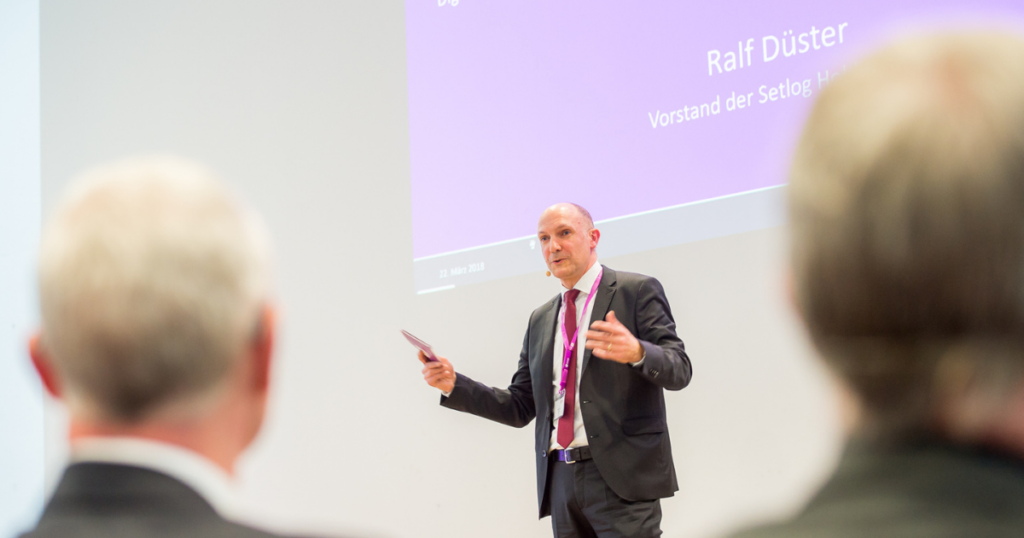Commentary by Ralf Düster, member of the board of Setlog Holding AG, Bochum, Germany

#stayhome! This was a popular hashtag at the beginning of the lockdown. “We can skype” and “we will e-mail” immediately became the motto of the people working from home. At the same time, futurologists prophezised in front of their laptop cameras: “The economy will be more digital after the corona crisis!“ Yes, it will be. But the central question is: How do companies digitalize? More Skype calls and more e-mails in the “sent folder” are not a sign of an intelligent digitalization strategy. It is still more trying to exstinguish fire – only with more water than before – and not preventing the fire in itself.
Take the consumer goods industry as an example: Industrial and trading companies in this country were unable to prevent the lockdown of suppliers in China, India or Bangladesh. All partners suffered. But the outbreak of the pandemic showed who did their homework – and who didn’t. Digital pioneers were able to inform their supply chain partners in real time about the change from sea to air freight, delivery delays, cancellations, etc. and collaborate successfully. This is done by means of web-based, centralized SCM platforms that make the supply chain transparent to all parties involved. Digital latecomers, on the other hand, extinguished fires day and night – with Skype calls, Excel sheets or e-mails. Home Office brought additional silos and even more media disruptions than before to many companies.
Those who are capable of learning are now following the motto ” never let a good crisis go to waste ” by Winston Churchill. In addition to a digital strategy, this includes the development of emergency scenarios, the analysis of sourcing strategies and suppliers, and the creation of an agile, networked ecosystem. In some industries, logistics will undergo major changes. The automotive industry will presumably operate somewhat more locally, buffer more parts, and no longer fully exploit just-in-time periods. However, the consumer goods industry will continue to have electronics, toys, sporting goods, clothing etc. in the low and medium price segment produced in Asia – and not in Western Europe. The cost advantages are simply too great for that. Whether short or long delivery routes: Only those who master logistics have a good chance of being commercially successful even when the supply chain is interrupted.
About Setlog
Setlog Holding is a provider of tailor-made Supply Chain Management (SCM) solutions. The central product is the cloud-based SCM software OSCA®, which is used by over 150 brands in the apparel, electronics, food, consumer goods and hardware sectors. With the help of OSCA®, companies connect with their customers, suppliers and service providers to optimally coordinate their supply chain, accelerate processes and efficiently manage supply chains.
Setlog GmbH is a 100% subsidiary of Setlog Holding AG. The company was founded in 2001 and is now one of the leading providers of SCM software with over 40,000 users in 92 countries. The software house employs 60 people at its locations in Bochum (headquarters), Cologne and New York. www.setlog.com
